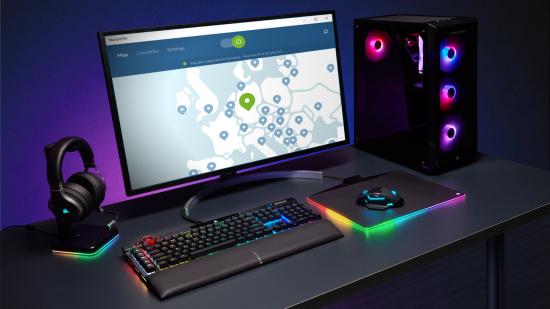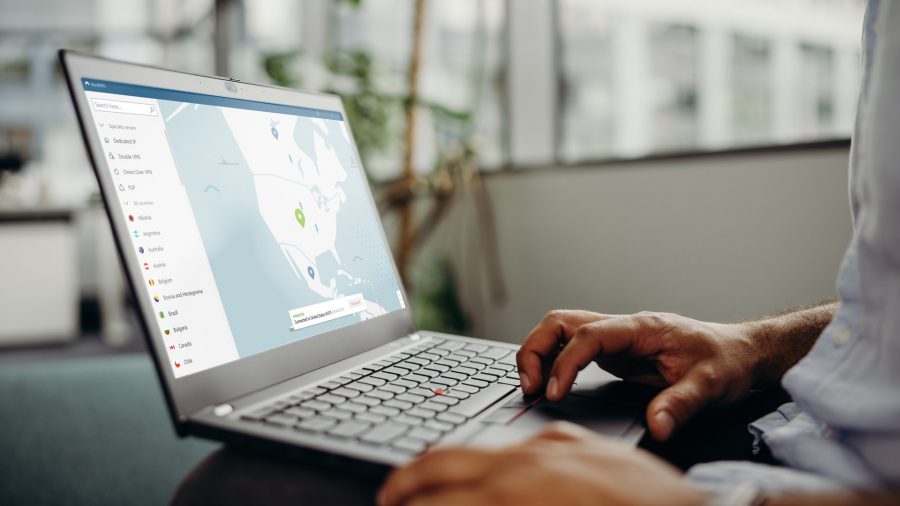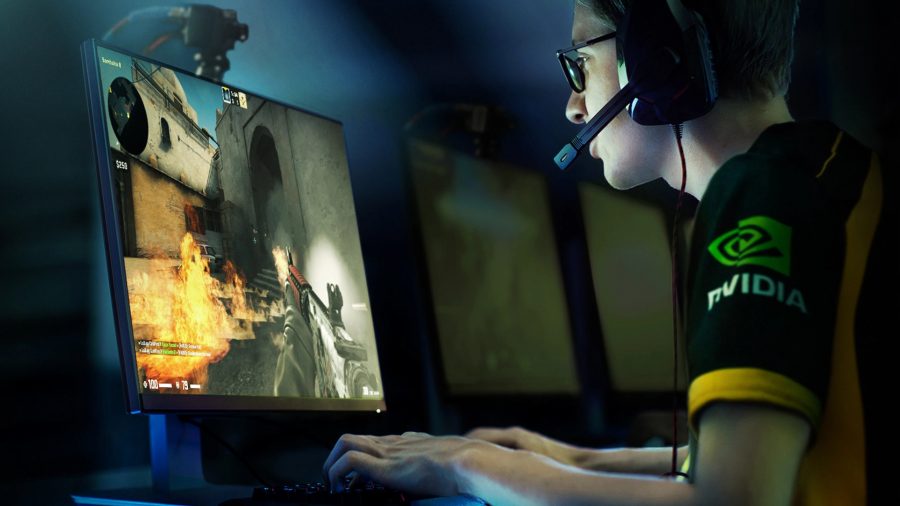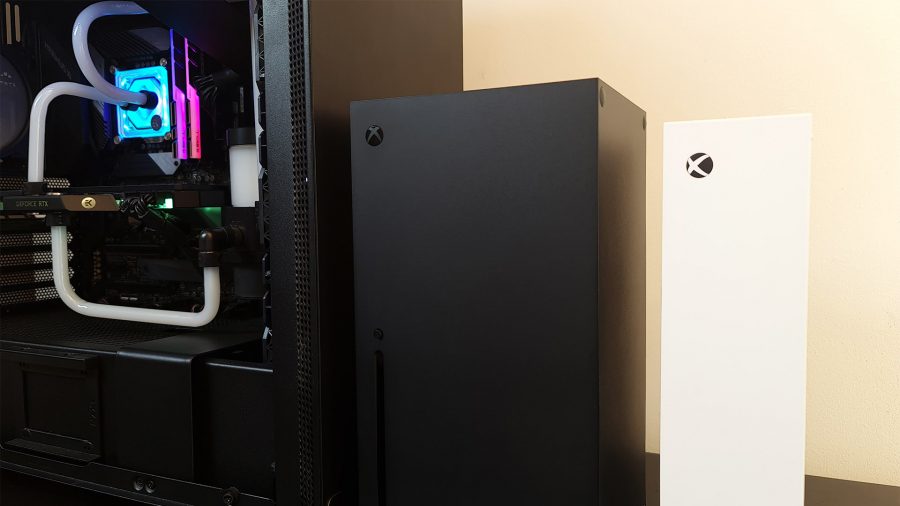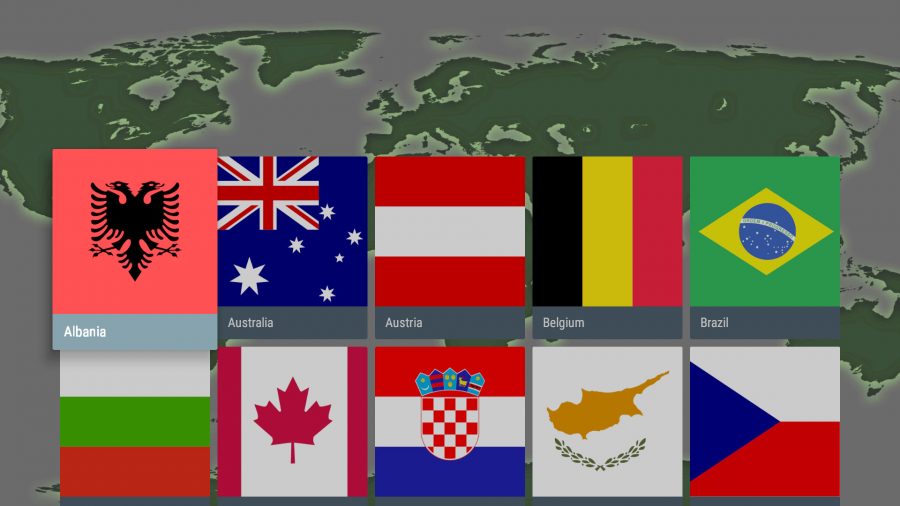A virtual private network (VPN) can elevate your gaming PC as a does-it-all device for both gaming and streaming, and is both easy to set up and to use. Computers are uniquely positioned as the easiest means of enjoying the gaming benefits of a VPN, as you can be up and running in just a couple of clicks, but consoles and smart TVs require more technical know-how to route through one.
You’ve probably heard of how VPNs allow you to access content that’s exclusive to other countries, from the best Netflix TV series in each region to otherwise restricted streaming services like Hulu and HBO Max. This is still very much the case, but a VPN can also enhance your gaming experience, particularly if you play peer-to-peer (P2P) online games like GTA Online.
Before you search for the best VPN for gaming, it’s worth noting that not all VPNs are created equally. The best free VPNs can come with notable limitations, such as bandwidth caps or missing features. However, there are numerous premium options available, but you’ll need to conduct your own research to figure out which VPN is right for you. Thankfully, the tips and tricks described below will work with whatever VPN you use, be they of the ursine or Nordic variety.
Why you can trust our advice ✔ At PCGamesN, our experts spend hours testing hardware and reviewing games and VPNs. We share honest, unbiased opinions to help you buy the best. Find out how we test.
Whatever your level of experience with PCs, whether you’re unsure of how to build a gaming PC or proudly rock the best graphics card and best gaming CPU available, a VPN provides a universal improvement to a system. Following our step-by-step guide, you’ll come out the other side with a safer and perhaps even internet online connection to bolster your online gaming sessions.
Installing a VPN on a gaming PC
Once you’ve decided which VPN you want to use, you’ll need to download and install it on your PC by heading directly to the official website. This process shouldn’t differ from any other program installations, simply requiring you to follow the setup wizard to completion. However, we strongly recommend that you don’t rush this and pay close attention to any programs the installer may try to sneak alongside your VPN, like free antivirus software, as well as what you’re agreeing to in the program’s terms and conditions.
Following the installation, you may notice that a new network connection has been created on your computer. This is the route all your internet traffic will take when you use the VPN, masking your IP address from your ISP (internet service provider) and other parties. More on that later.
Setting up a VPN on a gaming PC
With your VPN installed, you now need to select what region you’d like to connect to. When you select a region from the VPN’s dashboard, you tell the software to route your traffic through the service provider’s servers within a given location. So, why do this? There are two main benefits to directing your data through a VPN: privacy and safeguarding.
When you use a VPN, your browsing activity is made private to all but you – and in some cases, your VPN supplier. This means your internet service provider (ISP) can’t identify what it is exactly you’re doing on the internet, circumventing what’s known as ‘bandwidth throttling’. This is a common practice where ISPs limit your internet speeds during intensive tasks, like downloading files and playing games, in an attempt to alleviate demand on their services.
In terms of safeguarding, a VPN makes your internet traffic private by masking your IP address and replacing it with the server you connect to. So, let’s say you’re playing GTA Online, Valorant, or another competitive game and someone’s decided to get nasty and target you with a DDoS attack. In their attempt to clog up your network to the point of it being unusable, they’ll instead be met with the stalwart security of the VPN server and your gaming can go on unaffected.
When it comes to what servers to choose, that depends on what you want from your VPN. You might find games cheaper in certain countries or want access to region-exclusive titles, in which case you should choose a server in the corresponding country, but it’s important to note that this could violate terms of service agreements that risk you losing access to your account. To mitigate any potential latency, we recommend selecting a server within your own region, only using neighbouring regions as a backup. And if you’re playing with friends that are oceans away, hopping on a server located in their country could cut out the middleman, streamlining your connection and potentially reducing your ping.
Setting a VPN up on PS5, Xbox Series X, and Nintendo Switch
Console users will have a tougher time than PC gamers because Xbox Live, PlayStation Network, and Nintendo Online don’t allow you to download and run VPNs natively. Instead, you’ll either have to invest in a VPN router to cover all devices in your home, or connect your console to your gaming PC first.
Here’s how to connect your console to a VPN using your gaming PC:
- Setup and run your VPN on your PC
- Connect your console and PC together with an ethernet cable
- On your PC, navigate to your ‘Network & Internet’ settings
- In your ‘Network & Internet’ settings, select the ‘VPN’ tab
- Look for ‘Related settings’ and select ‘Change adapter options’
- Right-click your VPN and select ‘Properties’
- Navigate to the ‘Sharing’ tab
- Check the ‘Allow other network users to connect through this computer’s internet connection’ option
- In the ‘Select a private network connection’ dropdown menu, select your console’s ethernet connection and select ‘OK’
If you’ve followed all of these steps correctly, you should now be able to connect your console to the internet armed with the security of a VPN. However, you should bear in mind that you’ll need to keep your gaming PC on if you want to maintain your connection to your VPN.
Are VPNs legal to use for gaming?
VPNs are legal in most countries, but you should always check your specific region’s laws before using one. For instance, while VPNs are legal in China, they are heavily restricted and using them is viewed as suspicious behaviour, so proceed with caution.
Otherwise, it isn’t the VPN itself that is illegal, but what you use it for. Using one to access region-locked games or purchase titles at cheaper region-specific prices often violates a storefront’s terms of service and can result in loss of your account, but won’t see you suffer legal repercussions. On the topic of using a VPN to torrent copyrighted material, it’s safe to assume this is against the law, but different countries have different policies.
Here’s a list of countries where VPN use is outright illegal or frowned upon:
- Belarus
- China
- Iraq
- North Korea
- Russia
- Turkey
- United Arab Emirates
Does a VPN decrease ping?
Generally, no, but there are rare circumstances where it can. The amount that a VPN affects your ping will vary depending on the distance between you and the server you’ve selected, so one in your native region will have a much lower effect than another in a neighbouring or distant country.
It’s possible that sending your data packets through a more direct route can decrease your ping, but this isn’t guaranteed. The best things you can do to decrease your latency is reduce the traffic on your network, invest in a new gaming router, or consider alternative packages that offer faster speeds from ISPs.
For more VPN guidance, read our guide on the best VPN providers.
